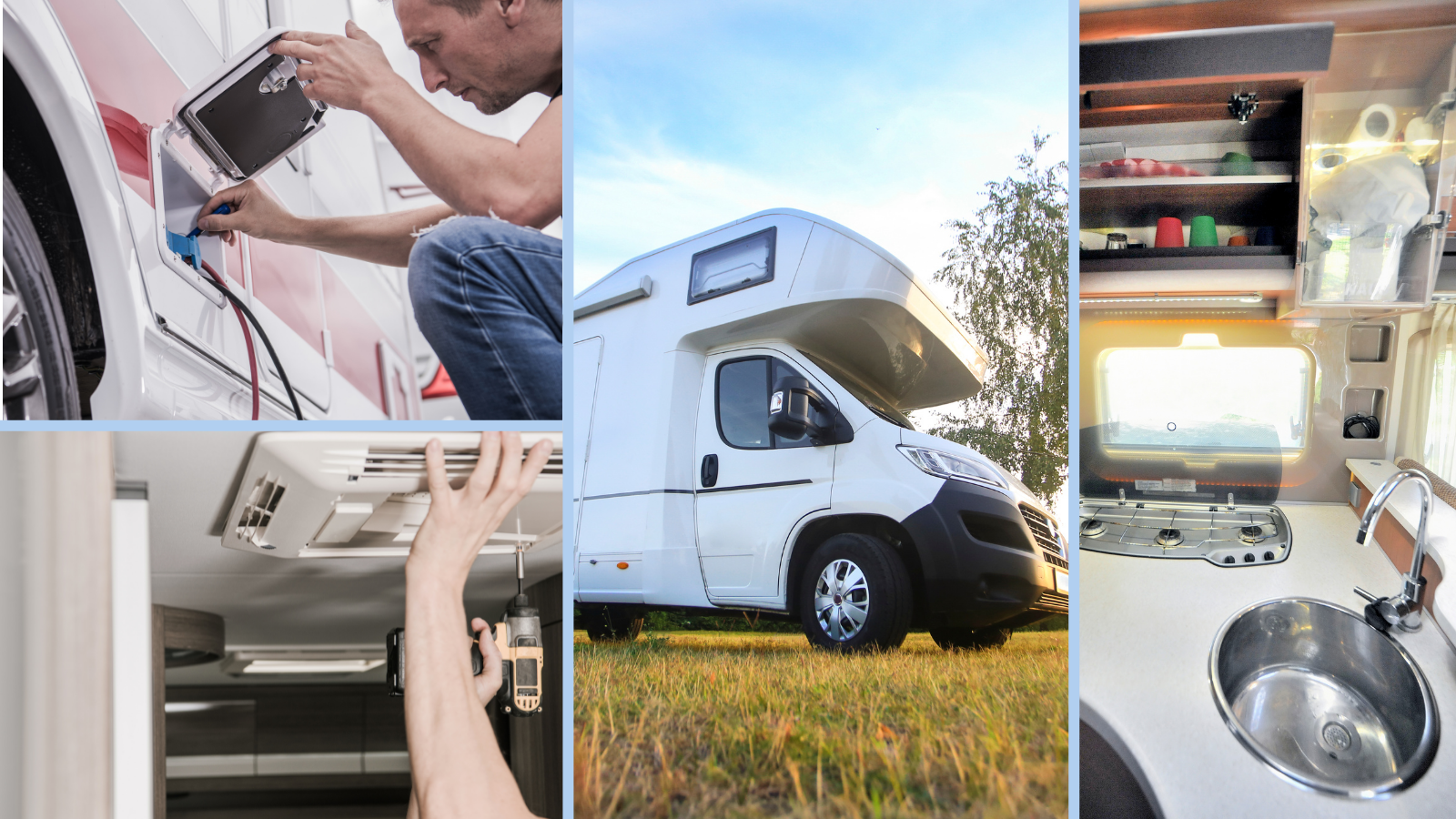As with most things in life, it’s never “one and done.”
You don’t just buy a house and spend the next 20 years ignoring the lawn or not changing burned out lightbulbs or leaving a toilet that’s overflowed to fester. You don’t simply buy a vehicle or tractor and never change the oil or add air to the tires. Likewise to these large investment items, when you purchase an RV, it’s not something that should just sit around and be ignored over the years. You want this investment to last as long as possible so that you can enjoy camping for as long as possible with that particular unit.
When it comes to RV maintenance, there are the standard upkeep items, which we will go over, but then there are also the larger and perhaps emergency maintenance needs that arise during your time of ownership. How do you discern whether you need a pro or can do it yourself? And how do you find someone to make the fix if you’re away from your normal service center? Or, do you just do it yourself?
Keep Up with Standard Maintenance
As with a regular vehicle, there are standard maintenance items that should be routine for upkeeping your RV. Engine tune-ups, tire rotations, oil changes, tire pressure checks, battery replacements, lightbulb swaps, and maintaining fluid levels all contribute to keep your RV’s major systems and components in good condition and in check. This all can be viewed as preventative maintenance as well. Letting these sorts of things go by the wayside can result in finding a problem too late or it becomes an emergency maintenance issue, resulting in you spending a lot more of your hard-earned money.
Keep your RV clean also. Maintaining awnings, tire wells, holding tanks, etc., goes a long way in lengthening an RV component’s useful life as well as helping you find any problems that much sooner. Scanning the exterior of your RV and waxing the exterior of the RV also help with this. Scanning the inside of the RV regularly, not just before the season starts or at the conclusion of a season, will help you identify anything to take care of in a timelier fashion.
That being said, sometimes things happen of their own accord. When you first notice a problem, try to take care of it as soon as possible. You should also have an emergency fund – how much is up to you – in place to manage those unforeseen and potentially expensive maintenance repairs.
Do Your Research
If you are away from home and your normal RV service center, and you need to have your RV serviced immediately, how do you find a reputable mechanic? The best advice is to ask around and research as best you can. Your options may be limited depending on where you are at the time, but you can look ahead on your route to see if there are better options – and you’re able to get there without causing more trouble for your RV.
The internet has made it exceptionally easier to shop around. There are not just the business websites, but social media channels and review websites and RV forums that can help you determine whether you want to work with a service center or not. Remember, reviews are helpful but they are made because either someone received exceptional service or terrible service – and you’ll likely see a mix of both. Look at the more recent reviews to get a more consistent feel.
Some dealerships have partnerships with service centers or a technician network that you can call. This could be another option to find a physical service center for your maintenance needs.
Another option is to ask around at the campground at which you’re staying or any local RV online forums. Local knowledge is extremely valuable.
Do it Yourself
If you’re handy, have been around RVs for a time, or have previous experience with a certain issue, then you can perhaps handle the maintenance yourself. If it’s not something that will keep you from camping in the immediate future, wait until you get home to start the project. If it’s an immediate need, then use the toad or tow vehicle to get to a store that carries the supplies you need. Even if it’s just a band-aid until you get home, treat a problem as soon as you can. There are numerous books and manuals to help you navigate RV maintenance items, and if you’ve been an RV owner already for a time, whether it’s one year or two decades, you already have some useful experience.
The internet is, again, a source of information. From pro blogs to YouTube videos with step-by-step instructions, it can be a good place to start to see whether you have the skills and equipment to handle the maintenance issue at hand. For simpler problems such as leaky faucets, sealing the roof, repairing a sewer hose, or treating unsightly streaks on your RV’s exterior, you may be able to handle with a little bit of time and research. For more complex plumbing or especially electrical issues, it may be wise to talk to a pro.
Some folks prefer taking on the majority of projects personally. After all, the RV is “your baby.” The choice is up to you.
Roll with the Punches
RV problems that require maintenance requires you to be flexible. It’s jarring to your vacation when something happens – and it could be anything from a water issue to an insulation issue to clogged plumbing to a broken hose. But as disruptive as something can be, your attitude and approach to finding a solution make all the difference in how much something disturbs your vacation or affects your time. Don’t panic and don’t feel overwhelmed. RV maintenance is a normal part of RV ownership, including all the hiccups along the way. Respond as swiftly as possible when your RV “tells” you it needs help.

